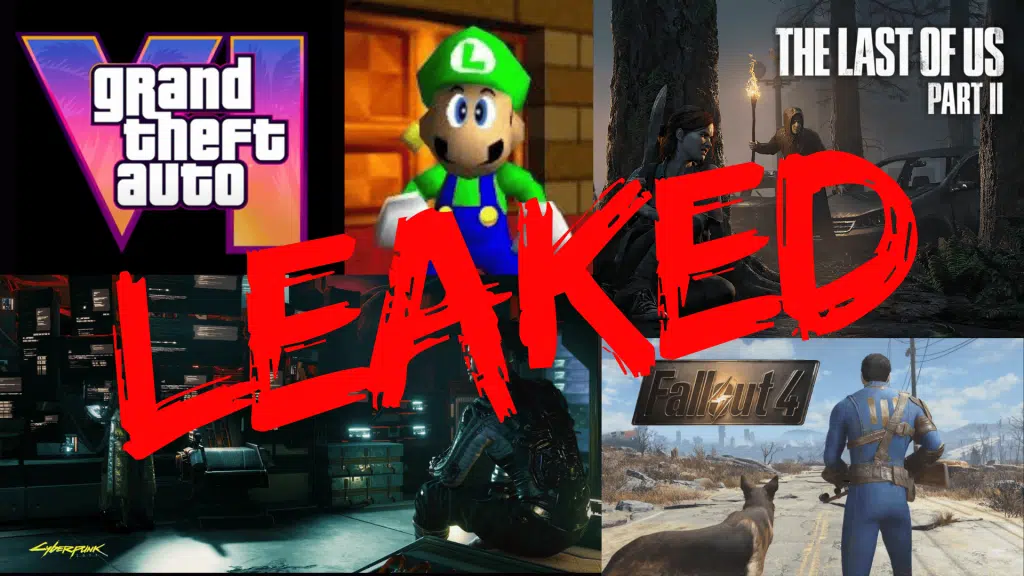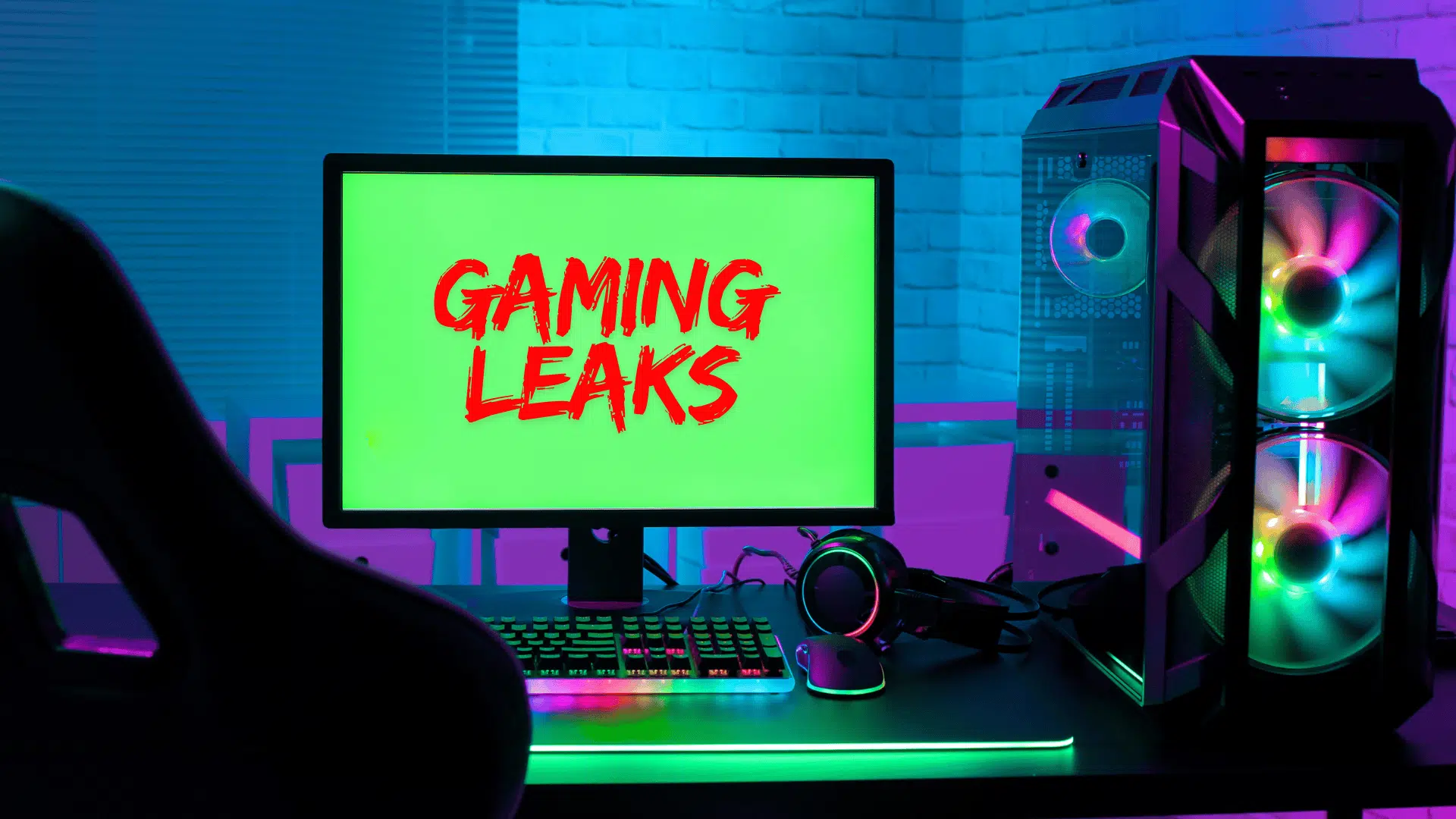Gaming leaks have become a huge part of the conversation in the gaming world. One leaked image or clip can set off weeks of debate, excitement, and even backlash before a studio is ready to say a word.
In my experience, leaks can be both thrilling and frustrating. Thrilling because they hint at what’s coming, and frustrating because they often spoil the surprise for developers and fans alike.
In this post, I’ll walk you through what they are, where they come from, how to spot fake ones, and why they matter more than ever today.
What Are Gaming Leaks?
Gaming leaks happen when unreleased or confidential information about a game becomes public before the developer or publisher announces it. These can include early footage, screenshots, plot details, or insider updates.
Leaks often spread through social media, forums, or file-sharing sites and can come from many sources, sometimes by mistake, other times intentionally.
Types of Game Leaks
Here are the most common kinds of leaks you’ll see in the gaming world:
- Data Mining: Players or modders dig into game files to uncover hidden or unfinished content not yet meant for release.
- Retailer Mistakes: Online stores or physical retailers accidentally list upcoming games or reveal launch dates before official announcements.
- Insider Leaks: Employees, contractors, or testers sometimes share information, sometimes anonymously, about unannounced projects, features, or updates.
- Accidental Uploads: Developers or partners mistakenly post trailers, patches, or demos early on platforms like YouTube, Steam, or PlayStation Network.
Even a small leak can quickly gain attention and spread across the internet, making it hard for developers to control how their work is revealed.
Latest Gaming Leaks
See what’s buzzing in the gaming world right now. These are some of the biggest leaks making the rounds, along with their origins and how trustworthy they seem.
1. Pokémon 2030 Roadmap
- Source: Multiple leaks from Game Freak and Reddit threads
- What’s claimed: Upcoming Pokémon games are planned through 2030, with Gen 10 rumored to feature new regions, survival elements, and procedural worlds.
- Credibility:Highly credible; several industry sources and major outlets like Eurogamer have covered it.
2. Assassin’s Creed Shadows for Switch 2
- Source: GameSpot and a French retailer listing
- What’s claimed: Ubisoft’s next big Assassin’s Creed entry will launch on the rumored Nintendo Switch 2.
- Credibility:Likely real; the timing lines up with Ubisoft’s marketing pattern, but there’s no official word yet.
3. PS6 and Next Xbox Information
- Source: YouTube channels (JayWood2010, Xbox Nation) and Insider Gaming
- What’s claimed: Hardware details for Sony’s PS6 and Microsoft’s next Xbox generation are being tested, with major performance upgrades and deeper AI integration.
- Credibility:Unverified; interesting but needs confirmation from official sources
The Biggest Gaming Leaks and Rumours


Some gaming leaks have made huge headlines and even changed how studios handle security. Here are a few of the most talked-about cases and whether they turned out to be true.
1. GTA 6 Rockstar Hack
- Source: Rockstar Games servers
- What happened: A hacker broke into Rockstar’s internal systems and leaked early gameplay footage, development tools, and source code for GTA 6. The videos showed a new city and unfinished missions.
- Credibility:Confirmed real; Rockstar publicly acknowledged the breach and confirmed the footage was legitimate.
2. Nintendo Gigaleak
- Source: Major data breach from internal archives
- What happened: Thousands of old development files, prototypes, and early builds from Nintendo were leaked online. Fans found early versions of Super Mario 64, The Legend of Zelda: Ocarina of Time, and more.
- Credibility:Confirmed real; the data matched Nintendo’s internal materials, though the company never issued a formal statement.
3. The Last of Us Part II Plot Leak
- Source: Internal tester
- What happened: Months before release, story spoilers and cutscenes from The Last of Us Part II appeared online. Fans first blamed hackers, but it was later tied to a former QA tester who had access to the builds.
- Credibility:Confirmed real; the leaked scenes matched the final game.
4. Cyberpunk 2077 Early Footage and Files
- Source: Ransomware attack and early build leaks
- What happened: Multiple leaks hit CD Projekt Red before launch, including gameplay footage, story details, and stolen source code. Some files came from early builds, while others were taken during a cyberattack.
- Credibility:Confirmed real; CD Projekt Red verified the breach and the theft of internal data.
5. Fallout 4 Reveal Leaks
- Source: Anonymous tip and leaked documents
- What happened: Before Bethesda’s big reveal, documents and screenshots surfaced showing Boston as the main setting. Many doubted the leaks at first, but they were later proven accurate.
- Credibility:Confirmed real; Bethesda’s official reveal matched the leaked materials exactly.
These cases show how wide-reaching and serious gaming leaks can be. They’ve pushed studios to tighten security, but also reminded fans how easily early builds and secrets can escape the vault.
How Gaming Leaks Happen
- Data Breaches: Sometimes hackers break into game studio servers or cloud storage. When that happens, files, builds, or concept art can get stolen and posted online before anyone’s ready.
- Insider Sources: Every now and then, someone working inside a studio shares information. It might be a developer, a tester, or even a marketing partner who leaks details to get attention or prove what they know.
- Early Retailer Listings: Retailers often prepare product pages early. If one of those listings goes live by mistake, it can spoil a major reveal. This happens more than you’d think.
- Role of Journalists, Leakers, and Data Miners: Not all leaks come from bad intent. Some gaming journalists share information after verifying it with reliable sources. Data miners also dig into public files or code updates to find clues about upcoming games.
As I see it, they’re part of what keeps gaming communities buzzing, but it’s a fine line between curiosity and crossing boundaries.
Where to Find Gaming Leaks
If you’re trying to keep up with what’s getting leaked or rumored in gaming, there are a few places I always check first. Each one gives a different view of what’s going on behind the scenes.
1. Reddit Communities
The subreddit r/GamingLeaksAndRumours is where most leaks first appear. It’s a busy hub where fans post screenshots, insider claims, and early news.
You’ll see quick updates here, but not everything turns out to be true, so take things with a grain of salt.
2. Trusted Websites
Websites like Insider Gaming, VGLeaks, and Eurogamer tend to share verified stories or provide context for leaks already floating around.
In my experience, these sites focus more on facts and credibility than speculation, which helps if you want solid information.
3. YouTube and X (Twitter) Leakers
Many creators and leakers share early info through YouTube videos or X posts. Some focus on analyzing game files, while others discuss upcoming announcements.
Accounts like @gaming_leaker often get early details, though it’s smart to cross-check before believing anything.
If you balance community chatter with reliable sources, you’ll get the full picture without falling for fake hype.
4. Warning About Fake Twitter Accounts
Twitter (now X) is full of impersonators claiming to be insiders. Fake accounts often use edited images or pretend to represent official studios.
Always confirm usernames, look for verified checkmarks, and compare their posts to trusted journalists before believing any claims.
How to Tell if a Gaming Leak is Real
Not every gaming leak you see online is true. Some are fan-made, exaggerated, or completely fake. How to tell the difference between real and false leaks:
Common Signs of Fake Leaks
Fake leaks often look convincing at first but fall apart under closer inspection. Many are created for attention or to mislead fans.
Low-quality screenshots, reused assets, or poor grammar in “official” posts are common giveaways.
Another warning sign is when the supposed leaker refuses to share proof or claims to have “a friend at the company” without details.
Verifying a Gaming Leak
To check if a gaming leak is real, focus on its source, content, and timing. Reliable leaks usually come from credible insiders and match a developer’s past release trends or design style.
They also tend to surface near major announcements. Always verify information from trusted journalists before believing or sharing any unverified claims.
Historical Accuracy of Certain Leakers
Some online figures gain a reputation for accurate leaks. Over time, their track record helps the community decide who to trust.
Trusted insiders or journalists with proven sources are usually more reliable than anonymous users, but even they can make mistakes, especially with early or changing game projects.
Tips on Assessing Reddit and Twitter Claims
When reading about leaks on social platforms, take extra care before believing or sharing them.
- Check the account’s history and credibility: Review past posts to see if the source has shared accurate leaks before.
- Compare details with official developer statements: Match leaked information with what developers or publishers have already confirmed publicly.
- Look for watermarks or signs of edited images: Inspect visuals for filters, mismatched lighting, or altered text that indicate fake content.
- Wait for multiple confirmations from trusted outlets: Reliable leaks are usually verified by several gaming journalists or reputable news sources.
- Be skeptical of vague “I heard from a friend” posts: Unverified claims without names, proof, or context often turn out to be false.
Staying cautious helps avoid spreading misinformation and disappointment when fake leaks turn out to be false.
Are Gaming Leaks Illegal or Unethical?


Gaming leaks raise both legal and moral questions. While some see them as harmless news, others view them as theft or betrayal of trust.
Legal Implications
Leaks can cross legal lines depending on how the information is obtained. Sharing or stealing unreleased material often violates non-disclosure agreements (NDAs) signed by developers, testers, or contractors.
In more serious cases, leaks involve data theft, such as hacking servers or stealing source code. These acts can lead to lawsuits, criminal charges, and major financial penalties.
Ethical Debate: Journalism vs. Theft
The ethics of leaks often depend on intent and context. Some argue that reporting leaks serves public interest, especially when revealing industry issues or canceled projects.
However, when leaks expose unfinished work or confidential plans, they’re seen as unethical. They can harm creative teams, spoil surprises, and misrepresent a game still in development.
Public Curiosity vs. Creative Rights
Fans are naturally curious about upcoming games, but creators also have rights over how and when their work is shared. Balancing these interests is tricky.
Curiosity drives discussion, but early leaks can disrespect the effort that went into a project. Respecting release timelines allows developers to control their art’s presentation while keeping the excitement genuine for players.
Protecting Developers and Game Data
I’ve seen how damaging gaming leaks can be, not just for studios but for the people behind the games.
When private builds or storylines get leaked, it can shake a team’s confidence and disrupt months of careful planning.
Leaks often force developers to change schedules, rewrite content, or speed up announcements just to regain control of the narrative. It’s not just about losing surprise; it’s about losing trust and momentum.
To prevent this, studios now use stronger security measures than ever:
- Encrypted servers and limited file access
- Stricter NDAs for employees and contractors
- Multi-factor authentication for developer tools
- AI monitoring to detect unusual data activity
Still, no system is perfect. As I see it, leaks are a constant reminder that creativity needs protection just as much as innovation.
The challenge isn’t just building great games; it’s keeping them safe until they’re ready to be shared.
Conclusion
Gaming leaks sit at the intersection of excitement and controversy. They give fans thrilling glimpses of upcoming releases, building anticipation long before launch.
Leaks can harm developers by revealing unfinished work, spoiling stories, and causing financial loss. Responsible sharing and skepticism help maintain fair and accurate gaming discussions.
Understanding both the excitement and the risks of leaks helps build a respectful gaming community. Leave a comment and share this blog with your gaming community.







